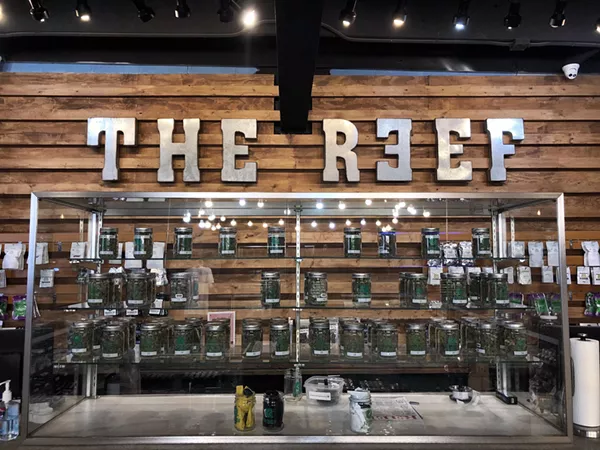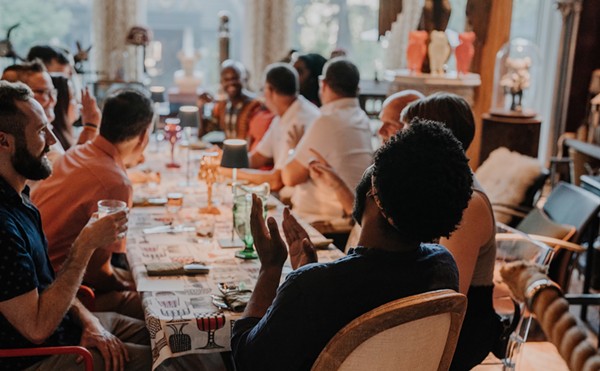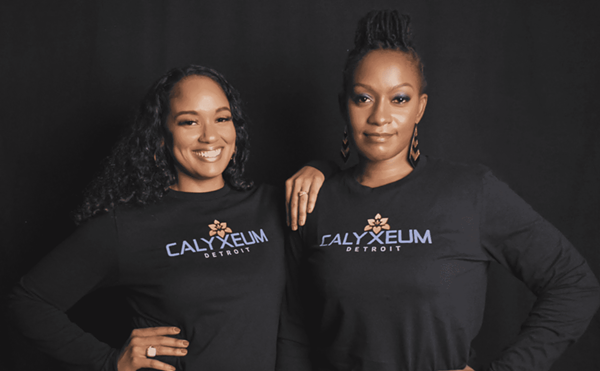
Steve Neavling
Wares for sale at The Reef medical marijuana provisioning center in Detroit. The Reef is suing LARA and the city of Detroit for failing to provide licenses to allow it to sell recreational marijuana.
Remember those medical marijuana provisioning centers that expected to open on Dec. 1 with recreational adult-use licenses, but then didn't?
The lawsuits have started.
Utopia Gardens, The Reef, 420 Factory, Plan B Wellness, 96 West Detroit, THC Detroit, and two grow operations have filed suit against the state office of Licensing and Regulatory Affairs, it's Executive Director Andrew Brisbo, and the city of Detroit in the Ingham County Court of Claims. Their issue is that they were all pre-approved for retail licenses, but LARA stopped processing their licenses when Detroit opted out of the adult-use program on Nov. 12.
First, a chronology of events:
On Dec. 6, 2018, the November vote (Proposal 1) to legalize marijuana was certified. The Michigan Regulation and Taxation of Marijuana Act required that the state allow applications within one year — and here we are a year later.
On Nov. 1, 2019, the state Marijuana Regulatory Agency began taking applications for recreational licenses only from those who already held medical marijuana licenses.
On Nov. 12, 2019, the Detroit City Council officially opted out of recreational marijuana. At this point, the suit alleges the state stopped processing applications from Detroit locations, although many of them had been prequalified.
On Dec. 1, 2019, recreational adult-use marijuana went on sale at four locations in Ann Arbor and a couple of other spots in the state. There was a reported $121,000 in Ann Arbor sales on that first day. In the first two weeks the state reports $3.1 million in sales — although none of that came from Detroit, the state's biggest market.
"I don't like twiddling my thumbs while a select few are able to sell marijuana because LARA decided to initiate the plan prematurely," says Stewart Carter, president of Utopia Gardens.
Carter refers to the widespread belief that adult-use sales would not start until spring 2020. But during a Benzinga "update on recreational licensing in Michigan" meeting in Detroit on Wednesday, Brisbo said that he was honoring the will of the people in setting the Dec. 1 date.
Section 9.3 of the state law reads, "the department shall approve a state license application and issue a state license ... at the time of application." While the ellipsis glosses over a bunch of qualifications for the applicants, the point is that if you meet the qualifications at the "time of application" then the state "shall approve" and "issue."
The time of application was Nov. 1, and the plaintiffs met enough qualifications to be prequalified.
Howell-based attorney Denise Pollicella argues that her clients are due licenses. "We went ahead and filed the applications," she says. "The state took the applications initially and we got prequalified and scheduled inspections."
Then the state inspector canceled those appointments.
"In the meantime, they issued everything in Ann Arbor," says Pollicella. "The director (Brisbo) literally drove down there himself. We applied on the same day."
"I don't understand why Detroit is getting special treatment for its inaction," she adds. "They've had a year."
Detroit opted out until at least Jan. 31, 2020, supposedly in order to pull a reasonable social equity program together to make sure Black entrepreneurs, a community that has been disproportionately impacted by the War on Drugs, is not left out of the new industry. In practical terms, a suit filed now isn't going to make a lot of difference as far as that date is concerned. But Detroit's opt-out doesn't necessarily end then.
"Detroit is the largest bureaucracy as far as a city is concerned, so it is going to take a minute," says Pollicella. Regarding how long it would take to get it all worked out, she says, "Even if they opted in today, I'm guessing it would take them at least a year."
David Harns, communications manager for LARA, declined to comment. "We can't comment on pending litigation," he tells Metro Times.
Carter is optimistic. He says that based on his conversations with the Detroit Law Department, "They're not going to oppose it if we get our recreational license. Whether or not they stand behind that is unsure, but I'm just going by what the city said."
This won't be the last lawsuit. Pollicella predicts there will be lawsuits in other cities regarding social equity provisions.
It's a new era for marijuana in Michigan. Sign up for our weekly weed newsletter, delivered every Tuesday at 4:20 p.m.






